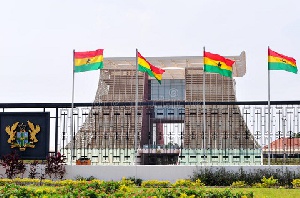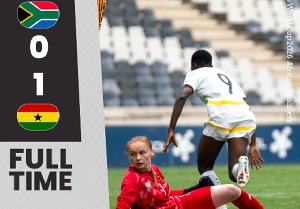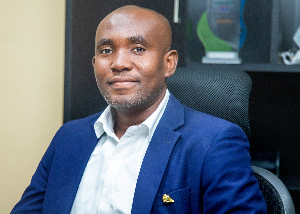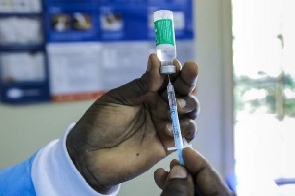After the fifth President of the fourth Republic of Ghana, Nana Addo Dankwa Akufo-Addo took office in 2017, following a resounding victory in the December 2016 presidential elections, several controversies have ascended under the NPP administration over the policies and schemes the government intends to carry out throughout the country.
From numerous promises of social interventions, infrastructure and provision of a stable economic environment for private-public businesses to thrive, GhanaWeb takes a look at some of the most controversial policies that have riddled government in 2019.
PDS-ECG Scandal
Earlier in October, government made the decision to terminate its concessionaire agreement with Power Distribution Services (PDS) after a careful review of demand guarantees.
Following that, government then announced that the Electricity Company of Ghana Limited (ECG) assume full operational and financial control of the electricity distribution.
Following that, a statement issued by the US Embassy on Wednesday, October 23 noted that the “United States of America notes this decision [termination of the PDS contract] with regret based on the conclusions of the independent forensic investigation, the U.S. position is that the transfer of operations, maintenance, and management of ECG to the PDS on March 1, 2019, was valid, and therefore the termination was unwarranted.”
Director of Research at the Institute of Economic Affairs (IEA), Dr John Kwakye, earlier projected that Ghana will lose close to US$2 billion after government made the decision to terminate the concessionaire agreement for Power Distribution Services (PDS).

2020 Sim Re-registration

When government announced that all mobile phone users will have to re-register their SIM numbers (Subscriber Identity Module) from 1st January, 2020 to 30th June 2020 or lose the numbers, many Ghanaians have questioned the decision by the Minister of Communications, Ursula Owusu-Ekuful, to make such a call entering into an election year.
“By June 2020, all those SIM’s that have not registered will be deactivated and that will also give impetus to the Economic Community of West African States (ECOWAS) free roaming initiative to enhance regional integration and economic development to be implemented from January 2020,” she explained.
The directive, according to government is expected to help monitor and track down persons who use their phones for criminal activities.
However, some experts in the telecommunications industry have recommended that although the call is well-intentioned, there remains fundamental and structural issues such as first ensuring Ghana has a Comprehensive Identification Database in the form of a National Register to serve as verification for the re-registration of sim cards.
They claim that without this in place, attempting a re-registration will not yield any meaningful value such as tackling security related issues, digital fraud and so on.
Communication Services Tax

On October 1, many Ghanaians raised concerns over the upward adjustment of the Communications Service Tax (CST) from 6 percent to percent – affecting all communication service provides across the country.
The decision which was announced by the Finance Minister, Ken-Ofori-Atta during the 2019 mid-year budget review indicated that for every GH¢1 of recharged purchased, a 9 percent CST fee will be charged to the consumer leaving GH¢0.93 for the purchase.
Shortly after, the sector Minister, Ursula Owusu-Ekuful revealed that she was receiving the end of personal attacks following the mode of the implementation of the CST. She noted that she was being accused of being a “wicked witch” for the decision but to her defense, she said the increase in the tax were imposed by parliament on request from the Ministry of Finance.
Comprehensive Sex Education

After it emerged that government had planned to introduce a Comprehensive Sex Education (CSE) into the educational syllabus, a large section of the Ghanaians across the nation reacted to the decision with many mixed feelings.
The now botched decision, which was expected to begin next year 2020, included Comprehensive Sex Education courses in all public schools starting with 4-year-olds being involved in the policy.
Earlier, some government officials defended the decision by indicating that the subject content would be age-appropriate and empower pupils with values that would protect them from ‘sexual harassment’.
The decision came under immense criticism when religious leaders, civil society organisations and the general public described the move as “a deliberate attempt to introduce homosexuality to Ghana.”
The President later debunked the policy when he visited a church and announced that a policy of such will never be acceptable to the Ghanaian populace.
New Parliament Chamber

Earlier this year, news of governments plan to build a new 450-seater parliamentary chamber made huge waves across the country.
The rumored US$200m cost for the new chamber was described by many as a complete misguided priority with some Ghanaians launching a campaign and threatening demonstrations to ensure that a new Parliamentary Chamber was not constructed.
Social media was set ablaze with the famous #DropThatChamber hashtag that saw many Ghanaians chide in on the matter and expressed their frustrations.
However, the proposed design of the new chamber was unveiled by the architectural firm – Adjaye & Associates, who are also the lead architect for the construction of the national cathedral.
SHS double-track system

The announcement of the operation of a double-track system at the SHS level earlier this year generated many opposing views on the move by government.
Unlike the single-track system which was first introduced under the Free SHS policy, the new system is expected to divide the entire student body and staff into two different tracks. That meant that while one track is in school, the other is on vacation.
The proponents of the programme maintained that the decision was to create more room to absorb more students to enter SHSs, thus increasing enrolment, reducing class sizes.
The Double-Track system commenced as part of the Akufo-Addo led administration’s commitment to raise the quality of education at the pre-tertiary level with an emphasis on the acquisition of reading, writing, arithmetic, and creativity as foundational skills.
The National Cathedral
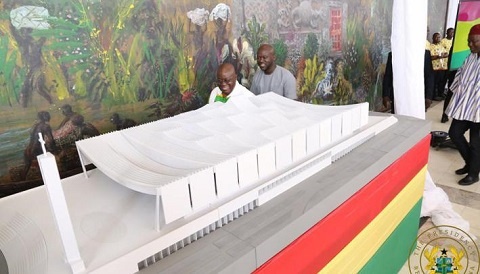
The news of the National Cathedral came as a surprise to many when government made the decision to construct a National Cathedral to mark the country’s 60th anniversary celebrations.
After a public outcry and many Ghanaians critiquing the move, government opted to explain that the 5,000-seater edifice was expected to be used for formal state occasions of a religious nature, such as national thanksgiving services, presidential inaugurations and state funerals.
Expected to be built by renowned Ghanaian-British architect, David Adjaye, the President described the move as a “priority among priorities” to build the cathedral.
The proposed site for the establishment of the cathedral will see the demolition of some public properties to make way for the National Cathedral.
General News of Tuesday, 17 December 2019
Source: www.ghanaweb.com
Year in Review: Most controversial government policies of 2019
Entertainment


